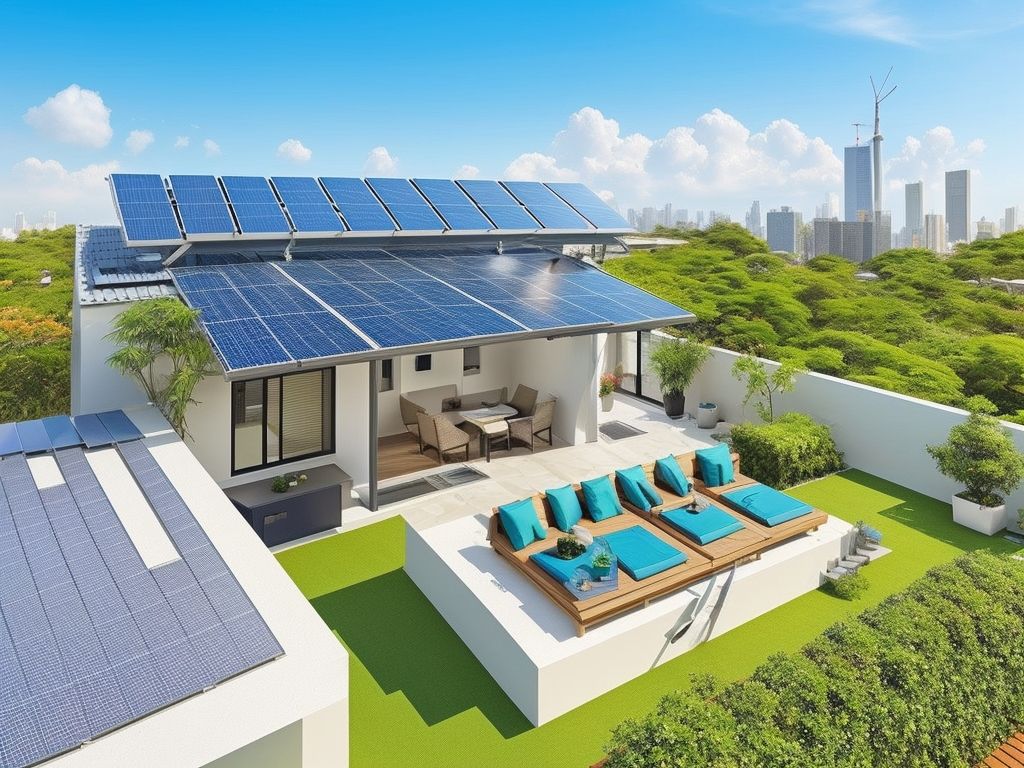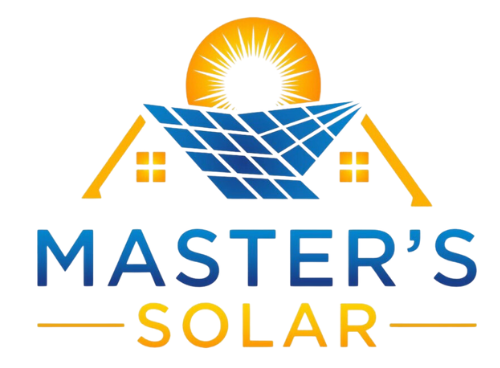When thinking about the cost of home solar, there are various factors to consider. Installation costs, such as solar panels, inverters, batteries, and wiring, must be taken into account. Plus, the labor for professional installation.
Maintenance expenses should also be taken into consideration. Solar panels need minimal maintenance, but occasional cleaning & inspection may be required. Certain warranties or service agreements may include extra costs.
It is important to factor in the financial benefits of home solar, too. Many households can reduce or eliminate electricity bills, simply by generating their own clean energy. Moreover, some states offer incentives and tax credits which can further offset expenses.
The Smith family is a great example of how home solar can benefit you. At first, they were hesitant due to high upfront costs. But, when they learnt about the potential savings in the long run, they decided to invest in solar panels. This paid off as their electricity bills decreased drastically, while also reducing their carbon footprint.
Understanding the factors that affect home solar costs
The cost of home solar systems depends on some factors. For instance, the size of the system, the equipment used, the installation process, and any extras or upgrades. Knowing these things helps homeowners make wise decisions when it comes to solar energy.
Let’s look closer at the factors:
- System Size: The size of the system affects its cost. Normally, bigger systems are pricier due to extra materials and labor.
- Equipment Quality: The quality of solar panels and other components can differ greatly. Better-quality equipment usually has a higher price, but it can be more efficient and last longer.
- Installation Process: A professional installation is key for the system to perform and last. The complexity and any modifications to the property can affect the cost.
- Additional Features/Upgrades: People may add extras like battery storage or energy management systems. These can give more energy independence but can add extra costs.
Don’t forget that rebates, tax credits, and other incentives can reduce some of the upfront costs of installing the system.
In recent years, solar costs have decreased due to technology and more competition. This has made solar energy more affordable for people who want to save money and be eco-friendly.
By looking at all these factors, homeowners can get an accurate estimate for their needs and budget when it comes to investing in home solar systems.
Assessing your energy needs
It’s essential to consider various factors such as geographic location, climate, and available roof space to get precise results for your solar energy needs. Here are some tips to help:
- Enhance power efficiency: Improve insulation, use energy-efficient appliances, and try LED lighting to cut electricity consumption.
- Consider battery storage: Store up the extra solar energy during the day and use it during cloudy days or at night, to maximize self-consumption.
- Look into net metering: Sell any excess solar power back to the grid to reduce your electricity bill further.
- Ask a professional installer: Get advice from experts to design an effective solar system that meets your requirements.
By following these ideas, you can lessen costs and environmental impact while making the most of your home energy needs. Accurately evaluating ensures that the solar system you invest in suits your household exactly.
Researching solar panel options
Cost: Compare prices of different solar panel options. Cheaper ones may not be as efficient & durable.
Efficiency: Look for panels with high ratings. This means fewer panels, saving space & costs.
Durability: Check the durability, especially if you live in an area with extreme weather. Longer lifespan = less maintenance & replacement.
Finally, choose a reputable supplier & installer. Take these steps to find the right option for your home.
Calculating the cost and payback period of installing solar panels
John wanted to invest in solar panels for his home. He analyzed his energy consumption and calculated the potential savings. After consulting with experts, he invested in a system for $14,000.
The cost breakdown is as follows:
- Solar panel system: $10,000
- Installation: $3,000
- Inverter: $1,500
- Mounting equipment: $500
- Wiring: $300
- Permits and inspections: $800
- Total: $16,100
These costs may vary depending on individual needs and local regulations.
The payback period is the time it takes for the savings from solar energy to cover the initial investment. This usually takes 6-10 years for residential solar systems. However, this may depend on factors such as electricity rates, usage patterns, and incentives. Homeowners should consult installers or use online tools to get accurate estimations.
John was able to recoup his initial investment within 8 years from reduced utility bills. His experience shows that considering the cost and payback period can lead to financial benefits and less reliance on traditional energy sources. Homeowners should carefully consider these factors before making a decision about going solar.
Exploring financing options
Here are some options for financing solar panels:
- Leasing: Rent solar panels and pay a monthly fee instead of buying them.
- Purchase with Cash: Buy solar panels with cash upfront for energy bill savings and potential tax benefits.
- Solar Loans: Financing options allow spreading out the cost of panels over time.
- Power Purchase Agreements (PPAs): Buy solar energy from a third party at a lower rate than the utility company.
- Solar Incentives and Grants: Government incentives and grants reduce the cost of going solar, making it more affordable.
Flexible payment terms and low-interest rates make it easier for homeowners to shift to clean energy. It is important to do research on each option including eligibility, payback period, and long-term savings potential. Embracing sustainable practices while saving money is now possible with advancing technology and renewable energy becoming more accessible. Financing options are evolving to provide even greater opportunities for homeowners wanting to go green.
Choosing a reliable solar installer
To find a reliable solar installer, look for one with a proven track record, relevant certifications, and positive customer reviews. Also, inquire about warranties and support offered, as well as their local presence. Get quotes from multiple installers to compare prices, but be aware of suspiciously low ones. Finally, schedule consultations to discuss needs and assess responsiveness and professionalism. Doing all this will ensure a successful solar energy journey.
Conclusion
Let’s wrap up our analysis and draw a conclusion. Cost of home solar systems depends on size, design, installation fees, maintenance expenses, and incentives/tax credits. Moreover, pricing may vary in different regions due to sunlight availability and local installation costs. Technology advancements and government policies keep changing solar pricing, so stay updated!
To save money without compromising quality: get multiple quotes from reputable installers, check out solar loans or leasing agreements, and maximize energy efficiency. These steps can help you benefit from clean energy generation while reducing your carbon footprint.
Frequently Asked Questions
1. How much does home solar cost?
The cost of installing solar panels on a home can vary depending on various factors such as the size of the system, location, and quality of equipment. On average, a residential solar system can cost anywhere between $15,000 and $25,000.
2. Are there any government incentives or rebates available?
Yes, there are several government incentives and rebates available to encourage homeowners to go solar. These incentives can significantly reduce the overall cost of installing a solar system. Some common incentives include federal tax credits, state rebates, and local utility programs.
3. Can solar energy save me money in the long run?
Absolutely! Although the initial cost of installing solar panels may seem high, solar energy can save homeowners a substantial amount of money in the long run. By generating your own electricity, you can reduce or even eliminate your monthly electricity bills.
4. How long will it take to recoup the cost of installing solar panels?
The payback period for a solar system can vary depending on your electricity usage and the cost of electricity in your area. In general, most homeowners recoup their investment within 6 to 10 years. After that, you can enjoy free or greatly reduced electricity bills for many years to come.
5. Do solar panels require maintenance?
Solar panels are relatively low maintenance. Rainfall is usually enough to keep them clean, but it may be necessary to rinse them occasionally to remove any accumulated dirt or debris. Additionally, it is recommended to have a professional inspect the system every few years to ensure optimal performance.
6. Are there any financing options available for solar installations?
Yes, there are various financing options available for homeowners who want to install solar panels. Some common options include solar loans, power purchase agreements (PPAs), and leasing programs. These programs allow homeowners to enjoy the benefits of solar energy without paying the full upfront cost.
Related posts:
- How Much Does Solar Increase Home Value? | Zillow Insights
- How Much Do Home Solar Panels Cost? A Complete Guide to Solar Panel Prices
- Determining the Perfect Size: How Much kW Solar Panel is Required for Your Home
- How Many Solar Panels to Power Home? A Comprehensive Guide on Calculating Solar Panel Requirements



